On July 24, mass arrests continued across Bangladesh, with at least 1,400 individuals detained nationwide as part of a sweeping crackdown by law enforcement targeting alleged perpetrators of violence linked to the ongoing quota reform movement.
According to a report by leading Bangla daily Prothom Alo, 641 individuals were arrested in Dhaka alone on that day, many of whom were identified as leaders and activists of the BNP and Jamaat-e-Islami.
With the July 24 arrests, the total number of detainees since July 17 rose to at least 4,500. Of these, 1,758 were from the capital, while 703 were arrested in Chattogram.
Speaking on the matter, then-Detective Branch (DB) chief Additional Commissioner Mohammad Harun-Ur-Rashid stated that arrests were being made based on video footage identifying those involved in violent incidents. Former Inspector General of Police (IGP) Chowdhury Abdullah Al-Mamun added, “Wherever the miscreants are hiding, they will be brought under the law.”
Despite the ongoing nationwide curfew, in effect for the fifth consecutive day, sporadic clashes broke out in Dhaka and several other districts. These occurred as factions of the anti-discrimination student movement carried out silent protests, wearing black cloths over their mouths and engaging in public outreach activities.
On July 24, the curfew was partially lifted in Dhaka and three other districts from 10 AM to 5 PM, allowing residents to attend to emergency needs. Limited curfew relaxation was also granted in other districts.
Public services slowly resumed during the curfew window. Long-distance bus services operated from Dhaka, while launches departed from Sadarghat terminal. Government offices and banks reopened for four hours. Meanwhile, army personnel, along with police and RAB forces, continued street patrols to maintain law and order.
Home Minister Asaduzzaman Khan Kamal stated that the curfew would remain until public confidence was fully restored.
That same day, three previously missing coordinators of the anti-discrimination student platform—Asif Mahmud Shojib Bhuyain, Abu Baker Majumder, and Rifat Rashid—were released after being held in secret detention for five days. In his book Janmobhumi Othoba Mrithyu, Asif Mahmud later described being held in a secret detention center he referred to as "Ayna Ghar" (Glass House), which he called a symbol of the ruling Awami League`s authoritarian rule.
As of the night of July 24, the nationwide death toll related to the movement reached at least 201, including four new casualties that day. Among them was a Chittagong University student who succumbed to injuries while undergoing treatment. Additionally, eight bodies of unidentified victims were buried as unclaimed by Dhaka Medical College Hospital (DMCH).
On the same day, former Prime Minister Sheikh Hasina held a views-exchange meeting with editors and senior journalists at her official residence, Ganabhaban. Meanwhile, student movement leaders issued an eight-point directive to guide ongoing protests.
The developments also drew international attention. The U.S. Department of Defense issued a statement through Pentagon spokesperson Maj. Gen. Patrick S. Ryder, expressing concern and urging all parties in Bangladesh to remain calm.
Additionally, the judicial commission established to investigate the deaths of six individuals during the July 16 clashes held its first official meeting. The commission announced plans to release a public notice seeking information from witnesses and to visit the sites of violence once conditions allow.
Late that night, the Bangladesh Telecommunication Regulatory Commission (BTRC) restored broadband internet on a trial basis across the country. However, mobile internet services remained suspended.


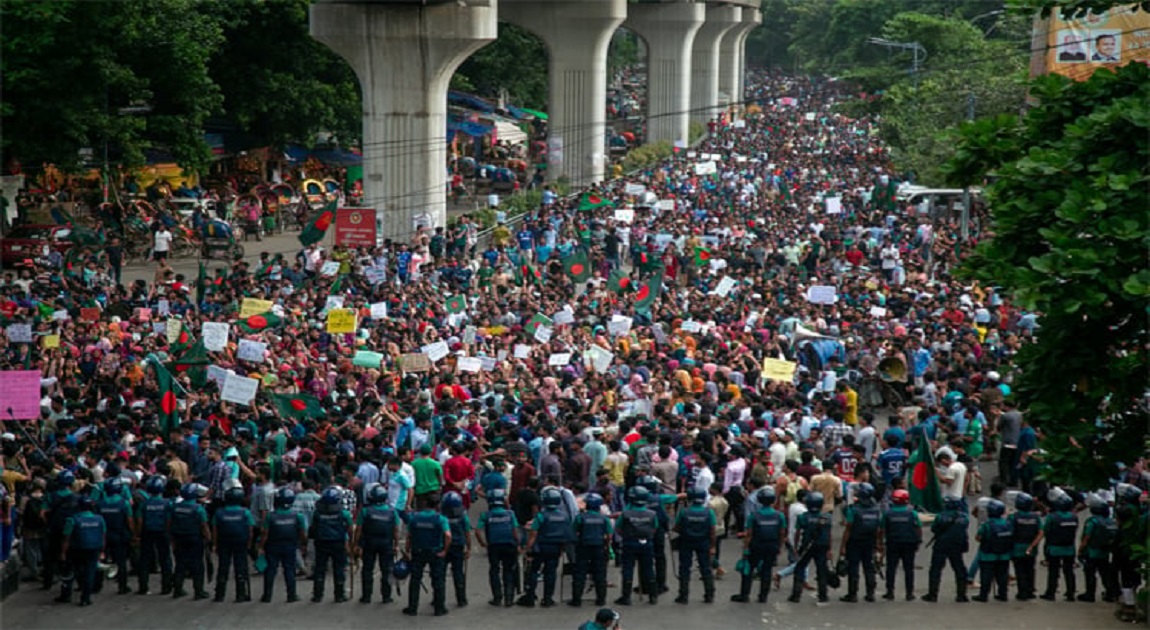

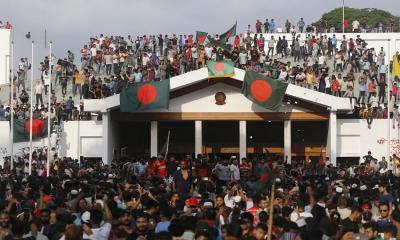
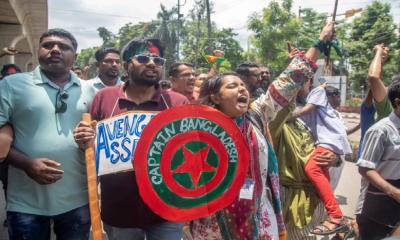
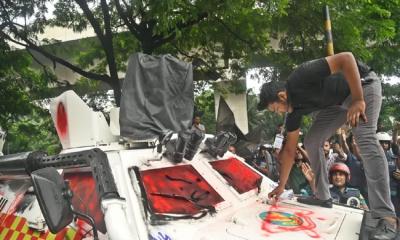
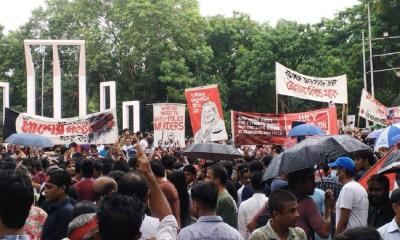
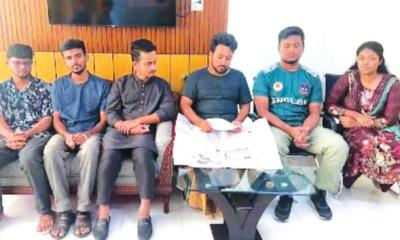
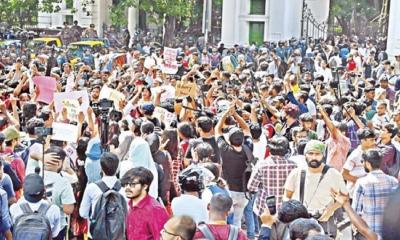




-20260226080139.webp)






-20260225072312.webp)










-20260219054530.webp)
-20260224075258.webp)





-20260221022827.webp)